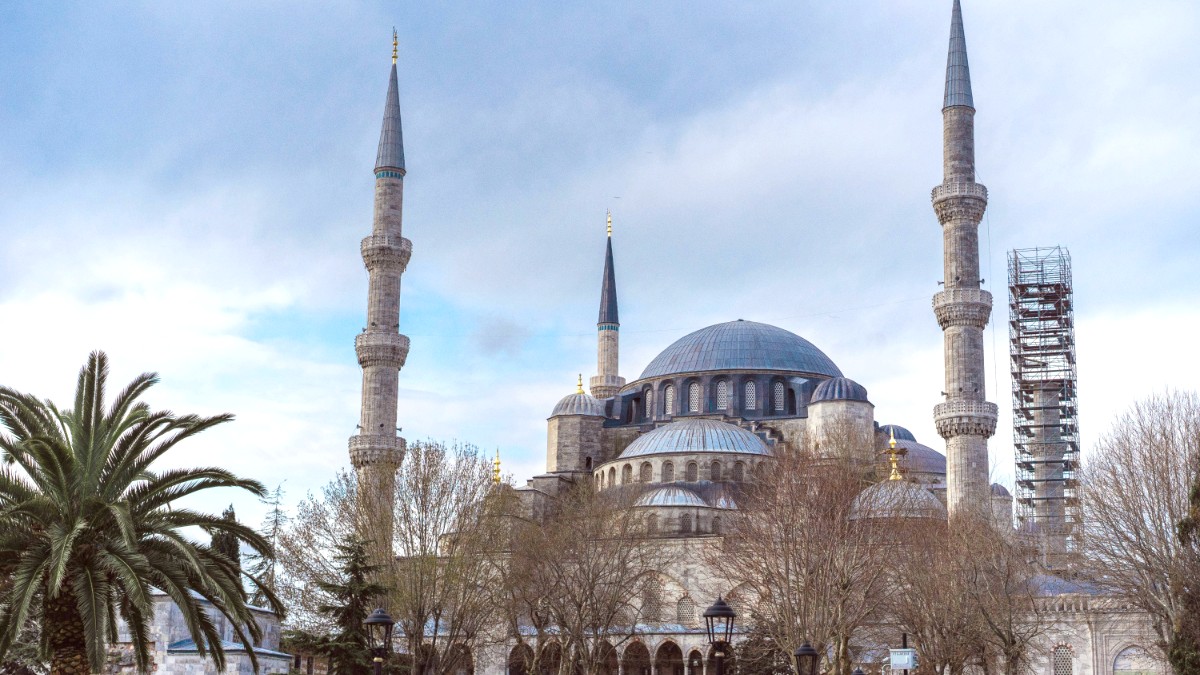
Istanbul, Turkey
Istanbul's climate patterns vary. Spring (April-May) presents mild temperatures (50-68°F / 10-20°C) with moderate precipitation and low humidity. Summer (June-August) brings hot, humid conditions (70-85°F / 21-29°C), with July and August being the warmest. Autumn (September-October) mirrors spring, with mild temperatures (55-72°F / 13-22°C) and moderate rain. Winter (November-March) is cold and wet (35-50°F / 2-10°C), with higher precipitation and occasional snowfall, especially in January and February. Strong winds occur near the Bosphorus Strait. Winter snowfall sometimes disrupts transport. Travelers should pack accordingly.
High Season (June-August) means peak outdoor dining and Bosphorus cruises. Crowds are many, accommodation and flight prices reach their highest, and heat is sometimes uncomfortable for extended sightseeing.
Shoulder Season (April-May, September-October) has pleasant weather. Crowds are fewer than in peak summer, and prices for accommodation and flights are more reasonable. Spring brings the Istanbul Tulip Festival, while autumn presents beautiful foliage. Occasional rain showers sometimes occur, and evenings might be cool, calling for light layers.
Fewer tourists, resulting in lower prices for flights and accommodation. The city has an unique, cozy atmosphere, especially around public holidays. Visiting museums and indoor attractions becomes more comfortable.
Istanbul experiences strong winds, especially near the Bosphorus Strait. Snowfall is possible in winter, especially January and February, which sometimes disrupts transport services. Plan for these possibilities when packing for a winter visit.
15-30 USD
40-70 USD
80-150 USD
200-500+ USD
2-7 USD
The official currency of Turkey is the Turkish Lira (TL or TRY). Exchange rates vary; verify current rates. ATMs are widely available and generally present favorable exchange rates. Banks and authorized exchange offices (Döviz Bürosu) also present currency exchange services. Avoid exchanging large amounts at airports, as rates there are often less favorable.
Credit cards are widely accepted in hotels, larger restaurants, and shops. Visa and Mastercard are common. American Express is less widely accepted. Always inform your bank of your travel plans to avoid card issues. Carry some cash for smaller shops, street vendors, local eateries (esnaf lokantası), and for tipping. Small denominations are good for everyday transactions.
Utilize the Istanbulkart for all public transportation. Eat at local "esnaf lokantası" (tradesmen's restaurants) for authentic and affordable meals. Bargain at the Grand Bazaar and Spice Bazaar, politely and with a smile. It is part of the shopping culture in these markets. Walk extensively within Sultanahmet to save on short taxi rides. Consider purchasing the Istanbul Museum Pass if you plan many state-run museums. Purchase snacks and drinks from local markets or supermarkets rather than tourist shops, where prices are often higher.
Tipping is customary in Turkey for good service, though not for every transaction. In restaurants, a tip of 5-10% is customary in mid-range to fine dining establishments. For casual eateries, rounding up the bill or leaving a small amount (e.g., 10-20 TRY) is common. For taxis, round up to the nearest convenient amount, or include 5-10% for good service. Hotel porters/housekeeping: a few Lira (e.g., 20-50 TRY) is appropriate for good service. Tour guides: consider 10-15% of the tour cost, or 100-200 TRY per person for a full day. Hammam (Turkish Bath): tip bath attendants 15-20% of the service cost.
Checking current rates for Turkish Lira before your trip is advisable for better budgeting.
Staying informed about health recommendations and safety practices supports a smooth journey.
Access to medical services and adherence to local safety measures are noteworthy.
No specific vaccinations are mandatory for entry. Consult a travel health clinic 4-6 weeks before travel. Routine vaccinations (MMR, DTP, Polio) should be current. Hepatitis A, Hepatitis B, and Typhoid vaccinations are often recommended.
Public and private hospitals are available; private facilities often have English-speaking staff. Pharmacies (Eczane) are widespread for minor ailments. Call 112 for general emergencies (ambulance, fire, police).
Tap water is generally not for drinking; stick to Bottled water. Food hygiene in established restaurants is generally good. Exercise caution with street food; select vendors with visible cooking and high turnover to verify freshness.
Sultanahmet has security due to high tourist presence and police patrols. Overall, Istanbul presents a moderate crime rate.
For Ambulance, Police, and Fire Services.
+90 212 527 4503 (Located in Sultanahmet; helpful for tourist-related issues).
U.S. Embassy Ankara: +90 312 455 5555. U.S. Consulate General Istanbul: +90 212 335 9000. Report lost/stolen passport to your embassy and local police.
Petty crime, like pickpocketing and bag snatching, occurs in crowded tourist areas, on public transport, and in markets. Maintain vigilance, especially in areas like the Grand Bazaar, Spice Bazaar, and Taksim Square.
Be aware of common scams: rigged taxi meters (insist on the meter or use ride-sharing apps), unsolicited "helpers" at tourist sites who later demand payment, "rug shop" scams, and "bar scams" where you receive a high bill.
Political demonstrations sometimes occur. Avoid these gatherings if you encounter them. Pay attention to local news and advisories.